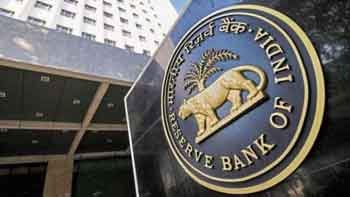Summary : Explore the reasons why banks are reluctant to issue credit cards to senior citizens despite their financial stability. Understand the role of RBI rules and banking policies in this scenario.
Summary
INVC NEWS
Mumbai : Credit cards have undeniably become an integral part of modern-day financial management. From paying bills and shopping to covering unexpected expenses, they provide a convenient and sometimes essential lifeline. However, an interesting anomaly exists in the financial world: while young and employed individuals often find it easy to obtain credit cards, senior citizens face significant hurdles. No matter how good their credit score or how substantial their bank balance, those over the age of 60 frequently struggle to secure a credit card. So, why is this the case? Let’s dive into the complexities of RBI rules, banking practices, and the challenges faced by senior citizens.
The Vital Role of Credit Cards in Today’s World
Credit cards offer a plethora of benefits:
- Convenience: Easy payments without carrying cash.
- Emergency Fund: Immediate access to funds in a financial pinch.
- Rewards and Benefits: Cashbacks, reward points, and discounts.
- Credit Building: Helps in building a good credit score.
Given these advantages, it’s clear why credit cards are highly sought after. However, senior citizens often find themselves excluded from these benefits.
Why Do Senior Citizens Not Get Credit Cards?
The Age Factor in Financial Decisions
There’s a popular saying: “Age is just a number.” Yet, in the realm of finance, age can be a significant factor. Banks view credit cards as unsecured loans, meaning there’s no collateral to fall back on if the borrower defaults. This makes it crucial for banks to ensure that credit card holders have the ability to repay their dues. Hence, they prefer issuing credit cards to individuals with a steady income, typically through employment or self-employment.
Maximum Age Limit for Credit Cards
The age limit for credit card eligibility varies across banks in India but usually falls between 60 and 70 years. Banks perceive several risks associated with issuing credit cards to senior citizens:
- Health Issues: Elderly individuals may face health problems that could impact their ability to manage finances.
- Lack of Regular Income: Post-retirement, many senior citizens do not have a steady income stream, increasing the perceived risk for banks.
- Dependence on Others: Banks often consider senior citizens financially dependent on their family, which could complicate timely bill payments.
RBI Guidelines on Credit Cards for the Elderly
While the Reserve Bank of India (RBI) has not stipulated specific rules regarding the issuance of credit cards to senior citizens, its guidelines emphasize the higher risks associated with lending to older individuals. Ultimately, the decision to issue credit cards lies with the banks, which tend to err on the side of caution, viewing the elderly as potentially high-risk borrowers.
The Banks’ Perspective: Assessing the Risks
Health Concerns and Financial Stability
Banks argue that the elderly are more prone to health issues that could incapacitate them, making it difficult to manage financial obligations. This perceived risk is a significant factor in their reluctance to issue credit cards to older individuals.
Regular Income and Repayment Capability
Post-retirement, the absence of a regular income stream raises red flags for banks. Without a consistent paycheck, banks fear that senior citizens may struggle to make timely payments, leading to higher default rates.
Dependency and Financial Independence
The financial dependency of senior citizens on their children or other family members further complicates the scenario. Banks worry that this dependency might impact the elder’s ability to handle financial responsibilities independently.
Social and Economic Implications
The Message Sent by Banks
By denying credit cards to the elderly, banks may inadvertently send a message that they view senior citizens as a financial burden. This perception is not only socially disheartening but also economically counterproductive.
Economic Contributions of Senior Citizens
Senior citizens significantly contribute to the economy, particularly through fixed deposits and other investment avenues. With the increasing average age of the population and the growing tech-savviness of the elderly, it’s essential to reconsider their financial exclusion.
The Convenience Factor
For tech-savvy senior citizens, credit cards can offer immense convenience. They can book travel tickets, pay bills online, and manage expenses with ease. Denying them this facility undermines their financial independence and adaptability.
FAQs
1. Can a senior citizen apply for a credit card in India?
Yes, senior citizens can apply for credit cards, but they often face more stringent eligibility criteria and scrutiny due to perceived risks associated with their age.
2. What factors do banks consider before issuing a credit card to a senior citizen?
Banks primarily consider the applicant’s regular income source, health status, credit score, and financial independence.
3. Are there any banks that offer credit cards specifically for senior citizens?
While some banks offer senior-friendly banking products, credit cards specifically tailored for senior citizens are rare. However, some banks may issue credit cards against fixed deposits, providing a secured option.
4. How can senior citizens improve their chances of getting a credit card?
Senior citizens can improve their chances by demonstrating financial stability, maintaining a good credit score, and opting for secured credit cards against fixed deposits.
Conclusion
The reluctance of banks to issue credit cards to senior citizens stems from a combination of risk assessment, RBI guidelines, and practical financial considerations. However, with the increasing financial participation and technological adeptness of the elderly population, it’s time for banks to reassess their policies. Offering credit cards to senior citizens with tailored terms could empower them, enhance their financial independence, and ultimately benefit the economy.
Age might be more than just a number in finance, but it shouldn’t be a barrier to financial inclusion and empowerment. With thoughtful policy changes and innovative financial products, banks can bridge this gap, ensuring that senior citizens are not left behind in the evolving financial landscape.












